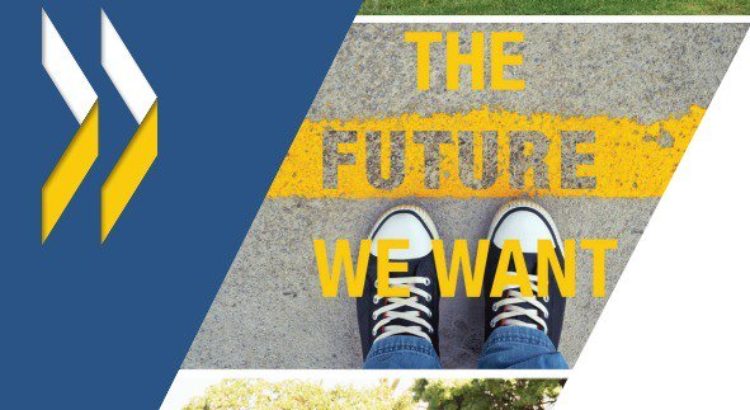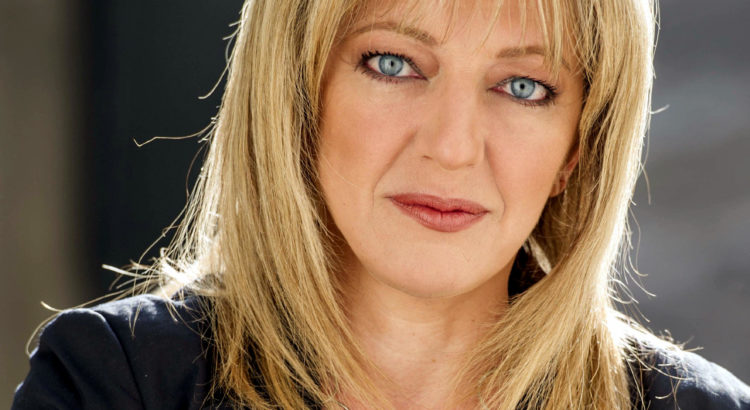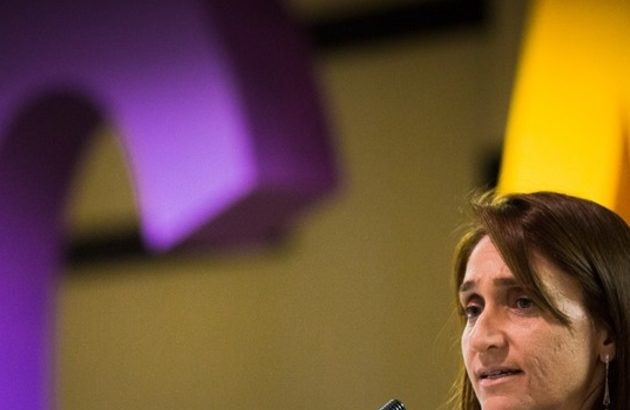By: CLADE
In the context of the UN High Level Political Forum, we spoke with Katarina Popović, General Secretary of ICAE
The UN High Level Political Forum (HLPF 2017), the international platform for monitoring and reviewing the Sustainable Development Goals (SDG) is held in New York from 10 to 19 July 2017 in New York.
In this context, we had a dialogue with Katarina Popović, General Secretary of International Council for Adult Education (ICAE), organization that impels the Education and Academia Stakeholder Group (EASG) – which integrates the structure of civil society participation in the debates on SDG in the United Nations-, alongside the Global Campaign for Education (GCE), Education International (EI) and the European Students’ Union. «The HLPF has spaces for civil society and stakeholder groups to present their reports and we were invited to bring examples of how we contributed to the implementation of the 2030 Agenda and how we helped governments in doing so», says Katarina about her participation in the High Level Political Forum. Read the complete interview:
What were the main issues that were discussed during the side event organized by the EASG in NY yesterday and why are they important?
The opportunities and challenges for the implementation of the Education Agenda 2030 have been analysed in several sections, and many aspects have been mentioned and explained, such as the fact that education is underfunded and experience budget cuts in many countries, further on there is the growing trend towards privatization and commercialization of education, undermining the responsibility of the state as the duty bearer for the 2030 agenda.
These were highlighted as the major challenges to achieving the Agenda 2030’s Goal 4 on education. In addition, and that is something that other SDGs are also facing, there are problems with the implementation of the goals: how to move from rhetoric to action and move from the overall agenda to a national and regional level. Further on, there is a strong focus on indicators, measuring and testing, and on quantitative data. Even if this is the precondition for the accountability, it narrows down the understanding of education and the approach to quality education for everyone. While reviewing of the implementation is being intensively discussed, there is no enough political commitment and financial support for the implementation itself.
There were lots of discussions about the role of the Member States and Major and Stakeholder Groups and about the best ways for civil society for taking on its responsibilities for both implementation and monitoring. In the discussions, we from the EASG always pointed out that the State has the main responsible for these tasks, but with the spaces for dialogue always open for participation of other actors.
Considering the role of civil society, it is double: there is, on one hand, the question of how to contribute to the implementation and monitoring, and on the other, the question of how to hold governments accountable, how to make sure that they take responsibility for these processes. Many sessions during HLPF resulted in concrete proposals.
HLPF offered spaces for civil society and stakeholder groups to present their reports, experiences and recommendations, and to bring concrete examples. Of course, we still believe that this exchange and dialogue could be improved, but HLPF is ‘young’ mechanism and we are all still ‘shaping’ it.
In which events or side events organized in the context of HLPF did you participate and which highlights would you like to share about these encounters?
The Education and Academia Stakeholders Group organized a side event at the HLPF in New York, whose main focus was the intersectionality of the global agenda. Why is this so important if that goal is not under review that year? With this event, we wanted to send the message that the implementation of the SDG4 is crucial for the implementation of the other goals.
A commitment to free and universal education is very important for eradicating poverty, achieving equality and better life for all. The experts who participated in the event pointed out that the commitment to education and lifelong learning, accompanied with sufficient investment, is the answer to most of the world’s problems. We emphasize the indivisibility and interdependence of all human rights reflected in all 17 SDG, and that achieving universal, quality, affordable education is the requirement for achieving them all.
The interdependence of the goals, and relationship between education and other goals is mutual: poverty, hunger, health problems, gender discrimination and environmental disasters are detrimental elements to the SDG4. In our event, we pointed out that it is necessary to break the traditional silose-thinking for more cross-sectoral partnership. It was the message of all speakers, both from Member States and civil society, as well as participants that took part in the discussion.
What are the main opportunities and challenges for the realization of the 2030 Education Agenda, according to the discussions that has taken place in the HLPF until now, and what are the expectations of civil society about possibilities of advocacy in this context?
The HPFL 2017 is a very dynamic event. In addition to the main sessions, there are numerous side events, discussions, and side meetings that we use for effective coordination of our activities with other stakeholder groups.
Yesterday, one of the session of the main programme – “Thematic review: Eradicating poverty and promoting prosperity in a changing world: Multi-stakeholder perspectives”, gave us the opportunity to bring up our views and specific issues. At that session I had the opportunity, as the representative of the EASG, to present our vision and to remind the plenary of the intersectorality of the agenda and of some important facts. One of them – the world map of illiteracy coinciding with maps of poverty, malnutrition, ill health, high infant and child mortality, proves that education hast to be the “golden thread that runs through the implementation of all 17 SDGs”.
There were also other events where we could discuss and get to know other aspects and dimensions of that topic, and get important information and ideas for our future advocacy actions. We also met with our allies and other groups, such as the Women’s Major Group, which organized daily events, meetings and actions, the Major Group of Persons with Disabilities and the Major Group for Aging. “No one should be left behind” is the idea that connects us in a very strong way. We believe that increasing collective efforts will help us improve the way we oversee the implementation of the Agenda.
I would say that the HLPF this year is more inclusive, and civil society has more spaces to discuss, raise issues and ask questions. But there is also a sense of urgency and a feeling that we all need to make more efforts together to implement Agenda 2030.
Source:
http://v2.campanaderechoeducacion.org/en/news/778-2017-07-17-16-37-46.html








 Users Today : 48
Users Today : 48 Total Users : 35460065
Total Users : 35460065 Views Today : 65
Views Today : 65 Total views : 3418696
Total views : 3418696